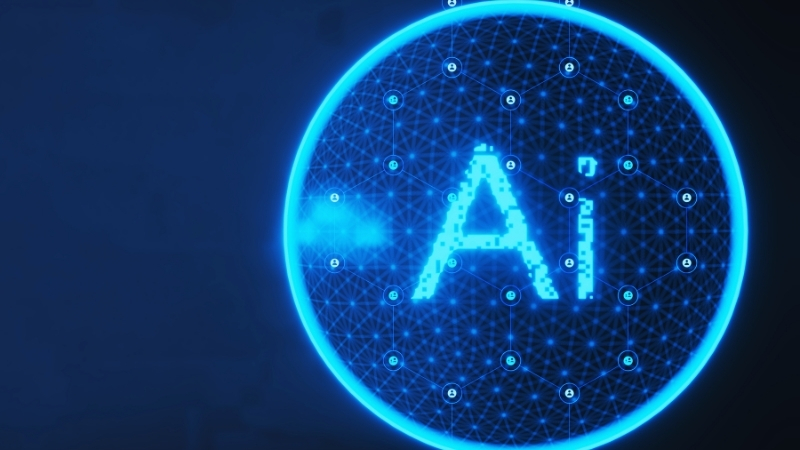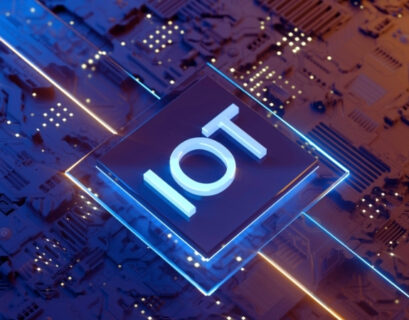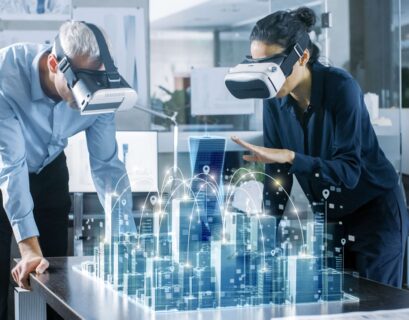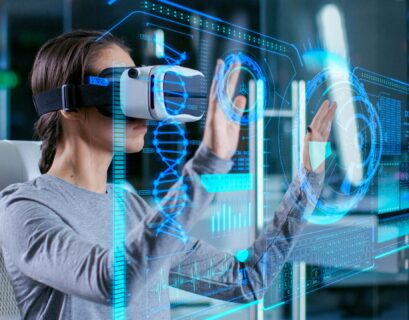Artificial intelligence (AI) has become one of the most transformative forces in the modern world. From improving business processes to enhancing personal experiences, AI continues to redefine the way industries operate. The future holds even more possibilities, with innovations on the horizon that promise to revolutionize various sectors. However, these advancements also raise critical questions about ethics, employment, and societal impact.
The Rise of Artificial Intelligence in Modern Society
Artificial intelligence is no longer a futuristic concept; it’s a reality that is embedded into our daily lives. From virtual assistants like Siri and Alexa to the recommendation algorithms used by Netflix and Spotify, AI is making decisions for us in real time. Beyond convenience, AI has far-reaching implications for industries like healthcare, finance, education, and transportation.
Governments and corporations have started investing heavily in AI technologies, anticipating that it will drive significant economic growth in the coming decades. Global spending on AI systems is expected to surpass $100 billion by 2025, underscoring its increasing importance. AI’s growth isn’t confined to just tech giants; startups are also innovating with AI-based solutions that target specific niches such as mental health, renewable energy, and customer service.
Key Innovations in Artificial Intelligence
The rapid evolution of AI has given rise to groundbreaking innovations. One of the most exciting developments is the concept of deep learning, a subset of machine learning that uses artificial neural networks to simulate human decision-making. Deep learning has enabled machines to recognize images, understand speech, and even compose music.
Another key innovation is the advancement of natural language processing (NLP), which allows AI to comprehend, interpret, and respond to human language. This innovation has significantly improved conversational agents and chatbots, making interactions with machines more natural and intuitive.
AI and Machine Learning: The Driving Forces
At the heart of AI’s growth is machine learning (ML), which gives AI systems the ability to improve their performance over time without explicit programming. By analyzing vast amounts of data, machine learning algorithms can uncover patterns and insights that humans may overlook.
The combination of AI and machine learning is fueling advances in fields like predictive analytics, autonomous systems, and robotics. These technologies are empowering companies to make better decisions, enhance customer experiences, and optimize operational efficiency.
Applications of AI in Healthcare
One of the most exciting areas where AI is making a significant impact is healthcare. AI-powered diagnostic tools are enabling doctors to detect diseases earlier and more accurately. For example, AI algorithms can analyze medical images, such as X-rays and MRIs, to identify tumors, fractures, or other abnormalities that might be missed by human eyes.
In addition, AI is playing a crucial role in personalized medicine, where treatment plans are tailored to individual patients based on their genetic makeup and health history. Robotic surgery, another AI-driven innovation, allows for greater precision and minimally invasive procedures, reducing recovery times for patients.
AI in Autonomous Vehicles
Self-driving cars are no longer the stuff of science fiction. AI is the engine behind autonomous vehicles, enabling them to navigate roads, avoid obstacles, and make real-time decisions based on their environment. Major automakers and tech companies like Tesla, Google, and Uber are investing heavily in this technology.
However, the widespread adoption of autonomous vehicles faces several hurdles, including safety concerns, regulatory challenges, and public trust. As AI technology continues to advance, these issues will likely be addressed, paving the way for a future where driverless cars are the norm.
The Ethical Implications of AI
With great power comes great responsibility, and AI is no exception. As AI systems become more integrated into decision-making processes, concerns about bias, discrimination, and fairness have come to the forefront. For instance, AI algorithms used in hiring or credit scoring have been found to reinforce existing biases, leading to unequal treatment of certain groups.
Another ethical concern is data privacy. AI systems rely on vast amounts of personal data to function effectively, raising questions about how this data is collected, stored, and used. Ensuring that AI is developed and deployed ethically will be crucial to its long-term success.
The Role of AI in Employment and Jobs
One of the most hotly debated topics in the AI landscape is its impact on jobs. Will AI lead to mass unemployment, or will it create new opportunities? While it’s true that AI has the potential to automate tasks that were traditionally done by humans, it also has the power to create new job roles in fields such as data science, AI ethics, and machine learning engineering.
Moreover, AI can augment human capabilities by taking over repetitive, mundane tasks, allowing workers to focus on more creative and strategic activities. The challenge will be ensuring that workers are reskilled and upskilled to thrive in an AI-driven economy.
AI in Education: Transforming Learning Experiences
The education sector is also being transformed by AI. With personalized learning platforms, students can receive tailored instruction based on their individual learning styles and progress. AI-driven tools can identify areas where students struggle and provide additional resources or alternative teaching methods to help them succeed.
Furthermore, smart classrooms equipped with AI-powered systems can monitor student engagement and adjust lesson plans in real-time to maximize learning outcomes.
AI and Smart Cities
As urban populations continue to grow, the need for efficient and sustainable cities has become paramount. AI is at the core of smart city initiatives, where technology is used to manage resources, reduce energy consumption, and improve the quality of life for citizens.
From traffic management systems that reduce congestion to AI-powered waste management solutions, smart cities are leveraging AI to become more responsive and adaptive. These innovations not only enhance urban living but also contribute to global efforts to combat climate change.
Future AI Trends to Watch
Looking ahead, several trends will shape the future of AI. The development of general AI, which can perform any intellectual task that a human can do, is one of the most ambitious goals in the field. Although we’re still far from achieving this, research is ongoing, and breakthroughs could happen sooner than expected.
Another trend is the growing importance of explainable AI (XAI), which aims to make AI systems more transparent and understandable to humans. As AI becomes more complex, it’s critical that we understand how decisions are being made, especially in high-stakes industries like healthcare and finance.
In conclusion, the future of artificial intelligence is bright, with innovations that promise to improve our lives in countless ways. However, we must also navigate the ethical and societal challenges that come with such powerful technology. By fostering responsible AI development, we can ensure that these advancements benefit all of humanity.












